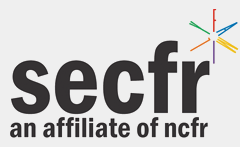Prevention, Protection, or Institutional Oppression? Exploring Family Well-Being and the Institution of Child Abuse and Neglect Prevention in Alabama
Proposal Focus
Practice
Presentation Type
Presentation
Abstract
Historically, child abuse and neglect (CAN) prevention efforts have focused on individuals and families, with disregard for the contexts and conditions that may underlie family challenges. There is increased recognition that efforts to support families and children must include focus on the societal level (Browne, 2014), yet few studies have examined how institutional processes influence community-based CAN prevention services. I utilized institutional ethnography to identify institutional factors that impact family well-being and CAN prevention work in Alabama. I relied on three primary forms of data: 1) focus group discussions; 2) interview discussions; and 3) analysis of key documents. Preliminary analysis indicates prevention work is diverse and occurs within a system of limited institutional and public support. I will discuss the specific institutional factors that influence child and abuse prevention work in Alabama and close with a discussion of how institutional ethnography can be used to strengthen family research and policy.
Keywords
Child abuse and neglect prevention, institutional ethnography, Alabama
Location
Yorkshire
Start Date
3-4-2020 2:05 PM
End Date
3-4-2020 3:15 PM
Prevention, Protection, or Institutional Oppression? Exploring Family Well-Being and the Institution of Child Abuse and Neglect Prevention in Alabama
Yorkshire
Historically, child abuse and neglect (CAN) prevention efforts have focused on individuals and families, with disregard for the contexts and conditions that may underlie family challenges. There is increased recognition that efforts to support families and children must include focus on the societal level (Browne, 2014), yet few studies have examined how institutional processes influence community-based CAN prevention services. I utilized institutional ethnography to identify institutional factors that impact family well-being and CAN prevention work in Alabama. I relied on three primary forms of data: 1) focus group discussions; 2) interview discussions; and 3) analysis of key documents. Preliminary analysis indicates prevention work is diverse and occurs within a system of limited institutional and public support. I will discuss the specific institutional factors that influence child and abuse prevention work in Alabama and close with a discussion of how institutional ethnography can be used to strengthen family research and policy.
![Southeastern Council on Family Relations Conference [2018-2020]](/assets/md5images/a0d3661d5139dc9b769a57be6f085156.png)

